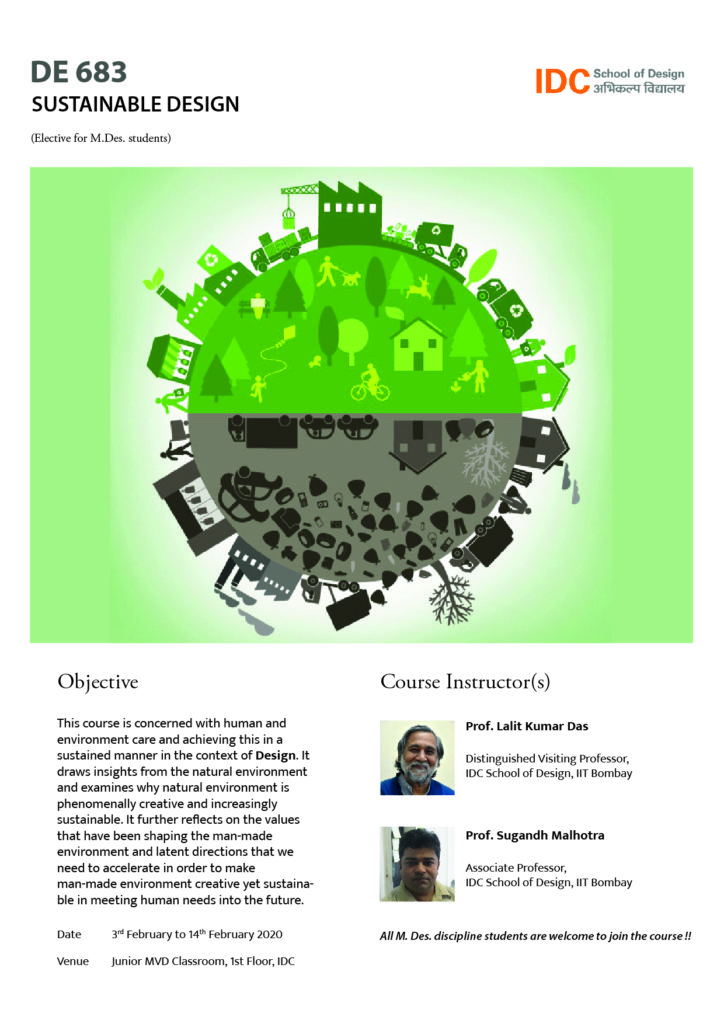The world that we live in faces numerous environmental, economical, social and technological challenges. In order to address these challenges in a way that improves lives, without damaging ecosystems, sustainable solutions need to be designed and implemented. Sustainable Design is an immersive, co-creative trans-disciplinary course for students who would like to work on the design of sustainable environments, systems, products and services. It is taught by designer and educator, Prof. Lalit Das over a two week module that comprises short lectures, discussions, inspirational case studies and two class assignments. During this time, students are encouraged to explore basic designing tools such as systems analysis, design thinking, circular economy and causal impact.
In this course, sustainable design is introduced as a holistic approach to designing in which students move from broad concepts to specific applications. They are sensitized to consciously differentiate between thinking which is a neutral process and feeling which involves emotions. By exploring key concepts of thinking, Prof Das manages to make students appreciate the way the human mind processes information and creates relationships. These methods are similar to that seen in many other species and in an attempt to create sustainable systems, humans can learn from the way nature nurtures complex systems. The narrative then moves on to the essential needs, wants and aspirations of human beings and their values which may change with time. As designers, the students need to be conscious of the values that they prioritize so as to create ecologically balanced interventions. This year, two class assignments were carried out. The first explored the role of a crucial natural resource such as water in driving human activity. While, the second required students to imagine and develop future sustainable mobility options. These were handed in as reports by the students for academic grading.

